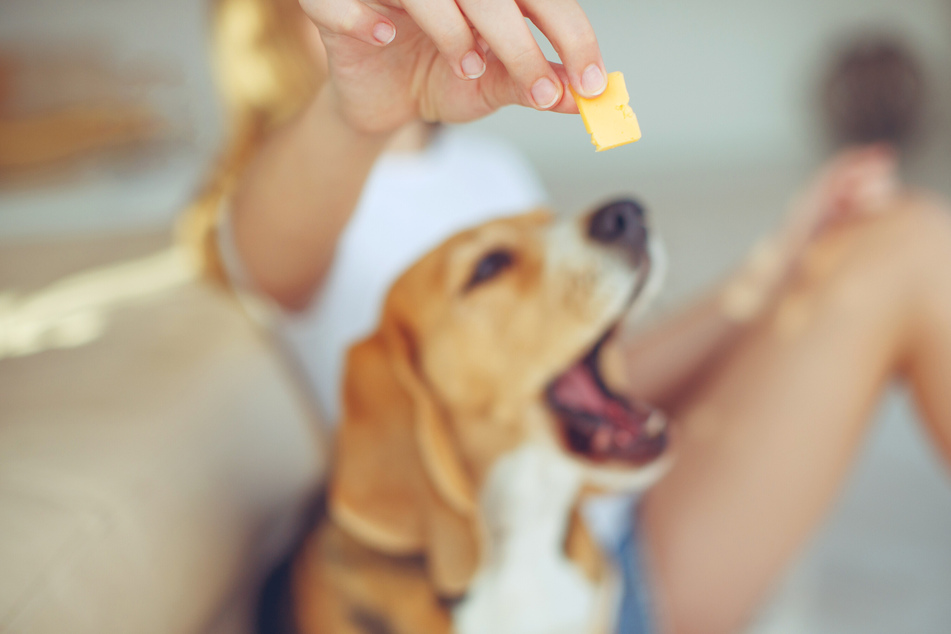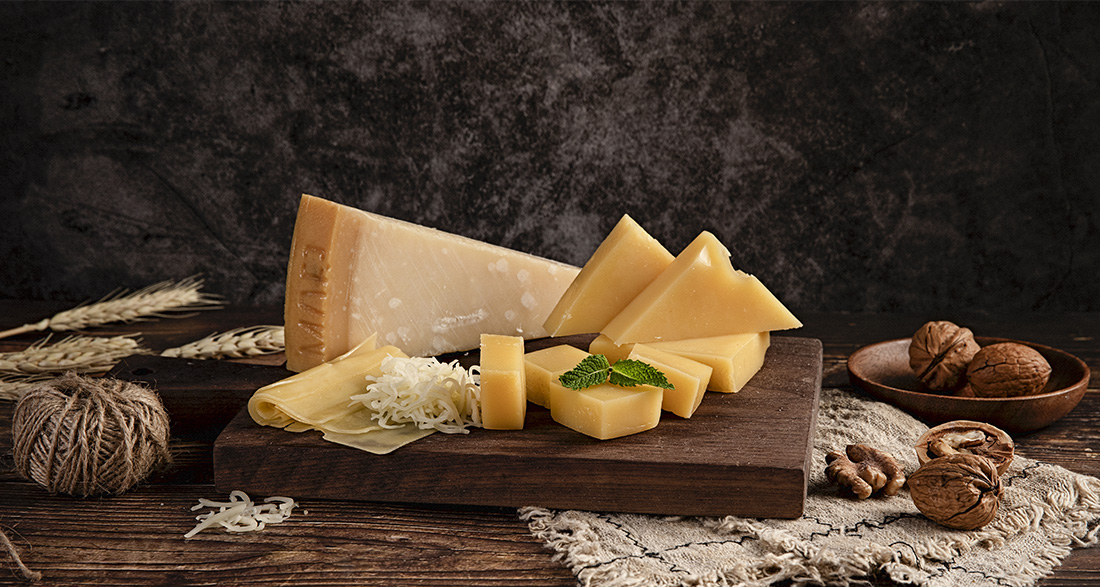Can dogs eat cheese? There is no simple answer to this intriguing question. Every dog owner should be aware of the pros and cons of this milky delight.
True to the motto “sharing is caring,” dogs love it when their owners share their own food. Whether it’s fruit, vegetables, or nuts, as long as the little licking mouth gets a bite.
However, what many dog owners may not know is that human foods can be toxic to animals. From chocolate to avocado to fruit seeds, there are many dangerous foods for dogs.
Some of them fortunately only cause mild to moderate symptoms in four-legged friends. However, others, if consumed, could lead to death, requiring immediate veterinary treatment.
While dog owners may let their furry friends lick ice cream during the summer, other dairy products are taboo for them. But what about a savory option? Can dogs eat cheese, or does this delicious dairy product have side effects for them?
iHugDogs reveals which cheese varieties are compatible and which ones dogs should steer clear of.
Quick Reading Tips:
- Some cheese varieties are suitable for dogs.
- Compatible options include Gouda, Butterkäse, and Leerdammer.
- Varieties like processed, fresh, or soft cheese should not be fed to them.
- Dogs should not eat too much cheese and should not be fed with it too often.
- Test individual compatibility with small bites.
Yes or no: Can dogs eat cheese?
The answer to the question “Can dogs eat cheese?” can be both “yes” and “no” because not every cheese variety is suitable for dogs, but also not all are dangerous. So, which cheese can dogs eat?
Cheese Varieties Dogs Can Eat
Not all cheese is created equal. These dairy products differ in the method of production and maturity. The lactose content in cheese is challenging for dogs to digest and can cause digestive problems.
Therefore, only lactose-free or low-lactose dairy products are suitable for dogs.
The following cheese varieties can be included in moderation:
- Gouda
- Leerdammer
- Grana Padano
- Manchego
- Emmental
- Pecorino
- Maasdam
- Parmesan
Good to know
Each dog reacts differently to cheese. Therefore, it is advisable to feed a small portion first and wait for the reaction.

Dangerous Cheese Varieties for Dogs
The following cheese varieties contain large amounts of lactose and are difficult for dogs to digest:
- Processed cheese
- Fresh cheese
- Melted cheese
- Soft cheese
- Mozzarella
- Spiced cheese
- Cheese-based spreads
Caution!
Blue cheese is even toxic to dogs! After consuming this type of cheese, dog owners should immediately consult a veterinarian, even if the dog is not showing signs of poisoning.
Alternative Cheese Varieties
Sheep and Goat Cheese
Small amounts of sheep and goat cheese are the perfect alternative for dogs. Both cheese varieties are lactose-free and therefore suitable for four-legged friends. However, due to the high fat content, one should also be cautious with feeding small amounts to avoid overloading the dog’s pancreas.
Cottage Cheese, Quark, and Yogurt
These three products can also end up in the dog’s bowl. Since lactose is largely fermented during the manufacturing process, cottage cheese, quark, and yogurt are moderately compatible. Due to the high protein and calcium content, cottage cheese & co. promote bone and tooth growth and can be consumed by puppies.
How Often Can Dogs Eat Cheese?
Only small amounts of cheese are allowed from time to time. But what does that mean exactly? The following explains how much dogs can really handle.

How Much Cheese Can Go into the Bowl
Once or twice a week
Cheese should not go into the bowl every day. Instead, it is recommended to use cheese as a reward or training snack. So, one or two times a week, you can confidently give a piece of delicious Emmental to your furry friend.
When the dog eats cheese for the first time, give him a very small piece and wait to see how the dog tolerates the dairy product. If he enjoys the cheese and shows no digestive problems like heartburn or diarrhea, then he can safely eat a bit more cheese in the future.
Maximum Ten Percent of Daily Caloric Needs
However, the amount of cheese depends not only on the individual tolerance of the dog but also on its weight. Therefore, keep in mind that treats, such as cheese in this case, should make up only ten percent of the daily caloric intake.
For cottage cheese, quark, and yogurt, the situation is similar. They can be mixed into the regular food once or twice a week to promote the dog’s bone structure. One tablespoon is sufficient.
Too Much Cheese Makes Dogs Sick
A high lactose content in cheese can make dogs sick. Some cheese varieties also contain a large amount of salt. Besides increased water intake, too much salt can also cause gastrointestinal problems.
The following symptoms are signs of overfeeding with cheese:
- Bloating
- Heartburn
- Increased panting
- Diarrhea
- Stomach pain
If the dog has eaten too much cheese, a smaller amount should be given in the future, or even completely abstain from the dairy product.
If the symptoms of illness do not subside within a day or if they are severe, persistent diarrhea, a veterinarian must be consulted urgently.
Conclusion: Dogs Can Eat Cheese, But Not Too Much
Occasional enjoyment of cheese is allowed for dogs. However, dog owners should always pay attention to the right type and the right dosage.
In addition, when feeding cheese, start with small bites to check the compatibility of your own dog.


